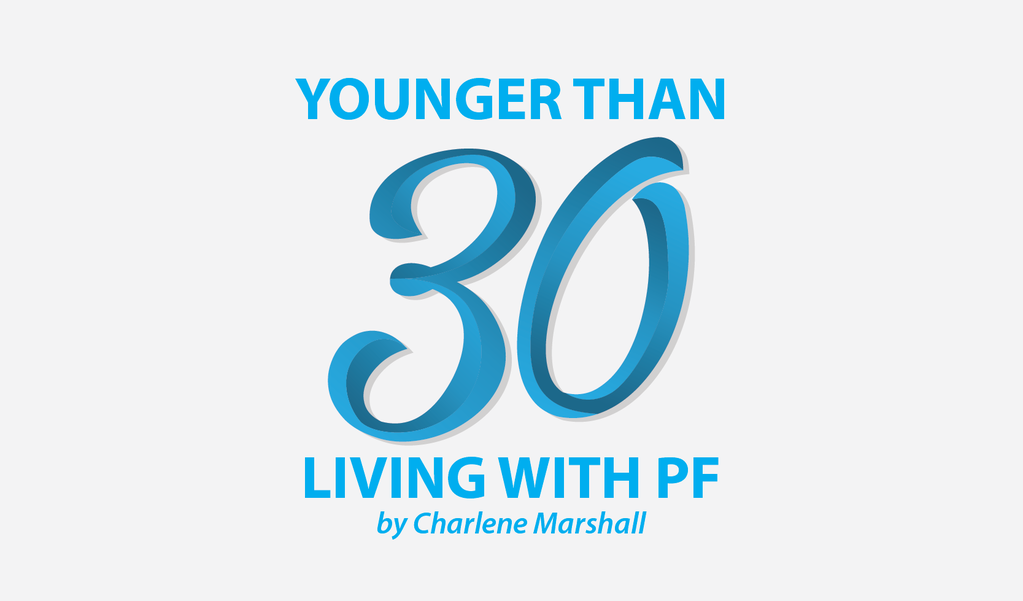When No One Has an Answer: Rhetorical Questions of an IPF Patient

By definition, a rhetorical question refers to one that seeks to make a point as opposed to seeking an answer. Lately, I have been asking myself rhetorical questions, and I am not expecting answers. But I am finding myself frustrated there are no answers. Most of these are big, life-impact questions, and sometimes I need to voice them aloud to friends and family. They often look at me blankly while stating they don’t have an answer, either.
Rest assured, I don’t need you to answer these big questions for me, but sometimes I just get tired of thinking about them.
I understand this puts friends in a tough position, when I ask big questions and no one has an answer. So, I have been trying harder to preface the rhetorical questions that I am about to ask with a statement that lets them know I don’t expect an answer. Sometimes, talking about them is sufficient, and I will feel better after discussing it. But sometimes I don’t, and I continue to think things through.
So, I’d like to ask other IPF patients: Where do you go with some of your bigger, rhetorical questions or questions about life in general?
I thought I’d share some of the rhetorical questions that have been floating around my mind lately. Some of them may be problem-solved, but not fully resolved, so regarding these questions specifically, I am feeling a bit stuck.
The first question refers to when people in my circle of support are busy, and they are unable to help me. I often find myself stating, “I understand you are busy, and I know you cannot always help me, but the bottom line is I physically still need help to achieve the daily tasks of my life, so where does this leave me?” I can only trust that my circle of support really does know that I understand people are busy, and that it is not my expectation that people set aside their own things to support me. My fear though, is that when people are busy, often I still need help with tasks like groceries, caring for my dog, getting to and from medical appointments, picking up medications, etc. I am left wondering what I can do about this. People need to have their own lives, so what do I do when no one is available to assist me, since I physically cannot do these things myself?
The second question I have been thinking about a lot can be generalized and applicable to everyone, not just people with interstitial lung diseases (ILDs), specifically idiopathic pulmonary fibrosis (IPF). But it is more applicable to IPF patients because our bodies tend to slow down and become unable to achieve the things that a healthy person can do. This rhetorical question is how do you keep up when life just doesn’t seem to slow down? Work is and has been very busy for our organization for a while, and I see even my closest colleagues who are healthy struggling to keep up. Life just seems to continue being busy, with no breaks and for someone with declining lung function. How am I physically supposed to keep up? For those of you who want to make the answer to that question, “You aren’t,” I refuse to accept that right now. I can’t just stop everything and do nothing, not yet anyway. Especially because the rest of my body is mostly healthy. I am frequently tired, but my spirit and my mind still want to keep up with everyone else.
This last rhetorical question I have been asking is another one most people probably can relate to at one point or another in their lives. It can be applied in a situation where anything bad or difficult has happened. Why did this have to happen? This is one question that I know no one has an answer for, not even the doctors, unfortunately, although research is getting us closer to understanding the causes of pulmonary fibrosis. This doesn’t help me feel better, because I was at the peak of my life when I became sick — just finishing school, landing myself a meaningful career and excited about my adult years ahead. I often ask why this had to happen to me, and I am trying to find peace and trust that someday I will understand why this was my journey.
To other IPF patients out there, I am curious to hear some of your big questions. Please feel free to share!
***
Note: Pulmonary Fibrosis News is strictly a news and information website about the disease. It does not provide medical advice, diagnosis, or treatment. This content is not intended to be a substitute for professional medical advice, diagnosis, or treatment. Always seek the advice of your physician or other qualified health provider with any questions you may have regarding a medical condition. Never disregard professional medical advice or delay in seeking it because of something you have read on this website. The opinions expressed in this column are not those of Pulmonary Fibrosis News or its parent company, Bionews Services, and are intended to spark discussion about issues pertaining to pulmonary fibrosis.








Gary Ford
Charlene:
Some very good questions that we all have had to face sometime or other through the course of this disease. My answers are for me and may not be applicable to you, but might help you answer those very questions.
Firstly - your support network...expand it as much as you can...for example include friends from work, church and/or sports/social networks...even extended family...I had my brother-in-law from Halifax NS volunteer to move in with us in Newmarket ON until I had the surgery...you never know who will help until you ask!...my mentor always said "Give them an opportunity to say Yes!" so don't be afraid...you might discover some "true" friends you never knew you had...
Secondly, how to up keep up with life?...the truth is you are sick!...so sick in fact that you might die!...accept it and make adjustments...for me, after 3 1/2 years of "trying to keep up", I said enough is enough and I retired... to do the things that truly matter, and I stopped chasing the almighty dollar...try to remember you can always make another dollar whereas you can never make another minute, so spend your time wisely on what really matters...relationships not stuff... you don't see any U-haul trailers in cemeteries ... and there is always "know your limits and play within it."...where you have to put priorities on what you can do and have to do, and the other events will have to wait or not be done at all...you will soon discover a lot of them were unnecessary anyways...
Thirdly...Why you?...is the hardest to answer...there are simple retorts of Why not you?...If not you, who else?...If it doesn't kill you, it will make you stronger...etc...etc...but my answer, because I am a follower of Christ, is that it drew me closer to God...my faith took me through this whole ordeal and I came out a lot stronger than I went in...I know now that He will never leave nor forsake me...when I went in for my 12-hour surgery, I had total peace about it...which helped me through the surgery and the recovery, as I am now at 8-month post-transplant and I have had no complications whatsoever and it was the roughest thing I have ever had to face, but I made it through...and my family made it through as well...and it strengthened them as well, so now we know no matter what comes at us in the future we will be able to face it...as such they are PF support groups out there, which are there to help you through this as well...and I am positive they would help you as well...I started one myself in the York region...join one and find new "friends", especially ones who have "walked where you are walking"...good luck and warmest regards.
Gary
Elayne Lemanow
Hi Charlene,
I am totally dependent on myself since my partner passed 1.5 years ago. For shopping I order as much as possible online and that includes groceries. For small purchases, errands, bank, I still have to go physically though.
I moved into an apartment complex with a doorperson who will assist with bringing packages etc. to my apartment or other small things needed. I signed up with a pharmacy that delivers prescriptions.
Currently, I am still able to drive and do small errands and get to doctor appointments. Am currently trying to plan for when I will need rides/more assistance. I will have to pay a driver. Also I tip when I am helped by doorstaff in my building. So there is financial consideration and I try to keep at minimum.
I cannot keep up socially. People seem to expect that I will socialize as they do....which means going out. As in your former post, however, I have reached the point where I am content to stay home more. I also get very tired and cannot always predict when that will happen.
I admire that you have a circle of support. Maybe you can write about how you went about getting the support or tell me where to read the article if you already wrote one about it.
Take care.
Lea
ILD. My rhetorical question is to the doctors, "Isn't there anything I can do?"
I understand you see a bazillion patients. I understand that I am autistic and "odd". I already know those things. Don't explain the obvious to me.
I just want a chance to live.
Lisa Pashenee
In California if you have low income, the county will pay for in home support services to help you (Paid for
by social security).
Michael
Big questions are important in life and so are you. Your impact on others is very important in ways you may not realize yet, so keep doing what you do and that includes asking rhetorical questions:)
Charlene Marshall
Thank you so much for your kind words Michael. They are very much appreciated and valued. :)
Charles Whittington
Thank you for putting in words what so many of us are thinking!